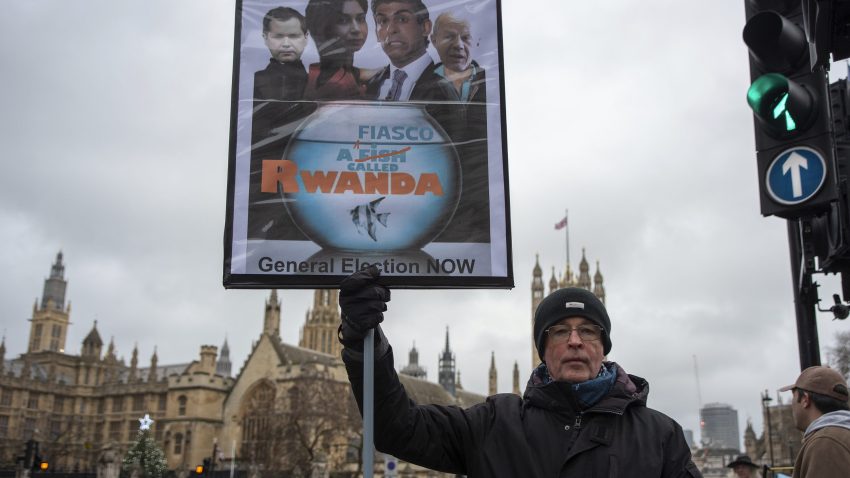As 2023 comes to a close, political life in the U.K. has congealed into a fragile stasis. With the governing Conservative, or Tory, Party polling at almost 20 points behind Labour, its leadership under Prime Minister Rishi Sunak has found itself pursuing populist policies designed to reduce migration numbers in the desperate hope that it can find its way back to the electoral successes it enjoyed under Boris Johnson. While draconian proposals to send asylum seekers arriving in the U.K. to Rwanda or increasing the income threshold for residency visas for non-U.K. spouses to £38,700 failed to dent Labour’s opinion poll leads, they have revealed that the Tory Party is undergoing a process of ideological radicalization.
At a time when most U.K. voters are preoccupied with the consequences of a decade of funding cuts to local government and public services, the Sunak government’s focus on policies like the so-called Rwanda Plan or demands that the U.K. renege from the European Convention on Human Rights indicates how many Tory MPs now openly espouse ideological worldviews that would not look out of place among far-right populists in the rest of Europe. Many U.K. commentators continue to portray far-right victories in the EU as a problem that could never happen “over here.” But the open embrace among dominant factions within the Tory Party of a mix of anti-migrant xenophobia and Brexit-fueled nationalism reflect a preoccupation with absolute sovereignty and a lack of respect for the rule of law that are in some ways more extreme than the agenda of many far-right parties in the EU.
Since the Brexit referendum of 2016, the conventional wisdom among many U.K. journalists and commentators was that that the Tory Party’s strategic shift towards backing the U.K.’s departure from the EU played a crucial role in halting the rise of more radical rivals on the right such as the United Kingdom Independence Party, or UKIP. Yet from Boris Johnson’s time as Tory leader and prime pinister onwards there have been growing signs that this absorption of significant parts of UKIP’s agenda has transformed much of the Tory Party into the kind of far-right populist movement its leaders once claimed to have vanquished.

